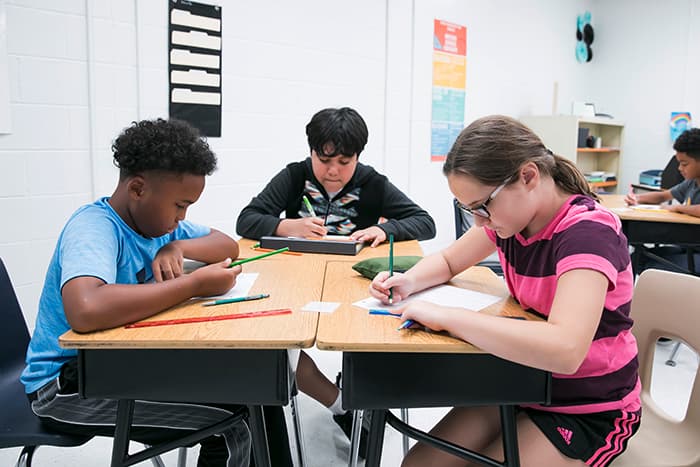Attendance Matters at HCPSS
February 21st, 2020

HCPSS continues to emphasize the importance of attendance by expanding supports and interventions proactively and consistently across schools. Attendance is one of the four principles—attendance, access, achievement and acceptance—that HCPSS focuses on to ensure every child is on a path to graduation.
“Frequent absence and tardiness are among the earliest indicators of a child at risk of falling behind,” said HCPSS Superintendent Michael J. Martirano. “It is critical that we encourage consistent attendance to help students foster a connection to the classroom, curriculum and staff. When students are in our schools, we are better able to build relationships and provide the necessary supports that encourage learning, and ultimately lifelong success.”
Last school year the Maryland State Department of Education changed its definition of chronic absenteeism, lowering the rate from 20% to 10%, so students are considered chronically absent if they miss 10% of school days.
According to Attendance Works, “Chronic absenteeism…incorporates all absences: excused, unexcused and suspensions. The focus is on the academic consequences of this lost instructional time and on preventing absences before students miss so much school that they fall behind…what helps is working with families to share the importance of attendance and to fix the underlying problems that lead to absenteeism.”

HCPSS Policy 9010: Attendance defines exemplary attendance as a final attendance rate of 96% or more of the student year. Each fall, HCPSS sends an informational letter to all families to explain the importance of attendance and takes the following steps to support all students in achieving exemplary attendance, in coordination with school-based Student Support Teams (SST):
- If a student has missed 5% of their monthly attendance days, parents will receive a phone call and letter from their school. Staff members coordinate with families to determine how the student can be supported for better attendance.
- If a student has missed 10% of their monthly attendance days, parents receive a 10% Chronic Absenteeism Attendance Letter. Parents and students may be scheduled for an attendance conference, and other interventions and supports may also be utilized.
- If a student has missed 15% of their monthly attendance days, they may additionally require an attendance support plan or be referred to the school system’s central attendance team.
- If a student has missed 20% of their monthly attendance days, parents will receive a 20% Habitual Truancy Letter. Students may be referred to the State’s Attorney’s Office and Project Attend, a multi-agency program that helps chronically absent students.

Policy 9010 is currently under review by a committee representing educators, parents, students and community members.
Families can contact their school for more information regarding their student’s attendance.
 HCPSS
HCPSS